ACSU Computer Science Research Night
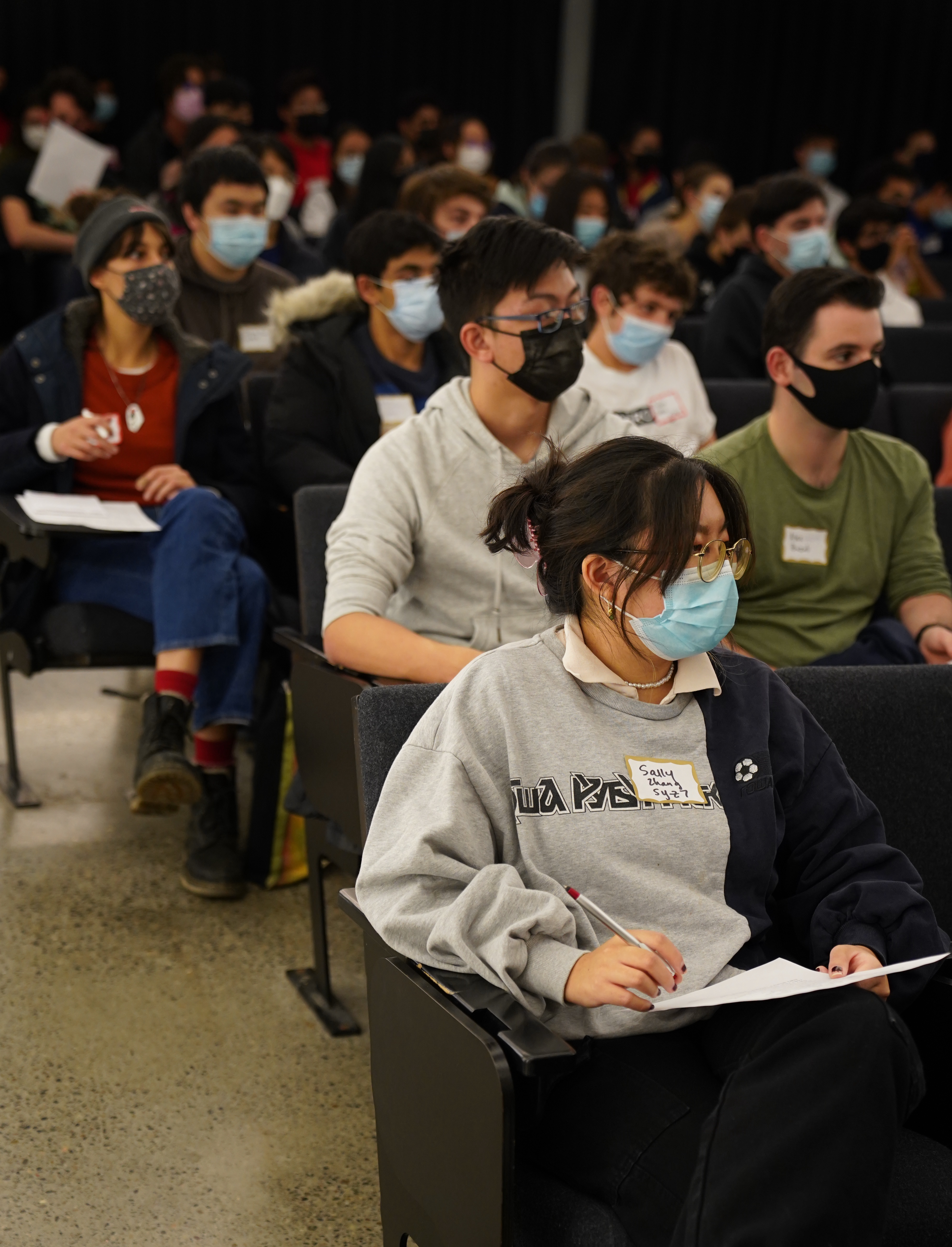 Cornell's Association of Computer Science Undergraduates (ACSU) successfully hosted the Computer Science department's first in-person Research Night since the onset of the pandemic—an event aimed at encouraging undergraduate students to participate in CS research, learn about graduate studies in the field, and consider longer-term research in academia and/or industry.
Cornell's Association of Computer Science Undergraduates (ACSU) successfully hosted the Computer Science department's first in-person Research Night since the onset of the pandemic—an event aimed at encouraging undergraduate students to participate in CS research, learn about graduate studies in the field, and consider longer-term research in academia and/or industry.
A panel of current Cornell CS undergraduate and graduate students fielded questions from over 150 attendees, who gathered in Gates Hall on November 2, 2021. CS Assistant Professor Adrian Sampson offered some opening remarks and thereafter fascilitated with notes from his perspective as a faculty member and someone who has also work in industry.
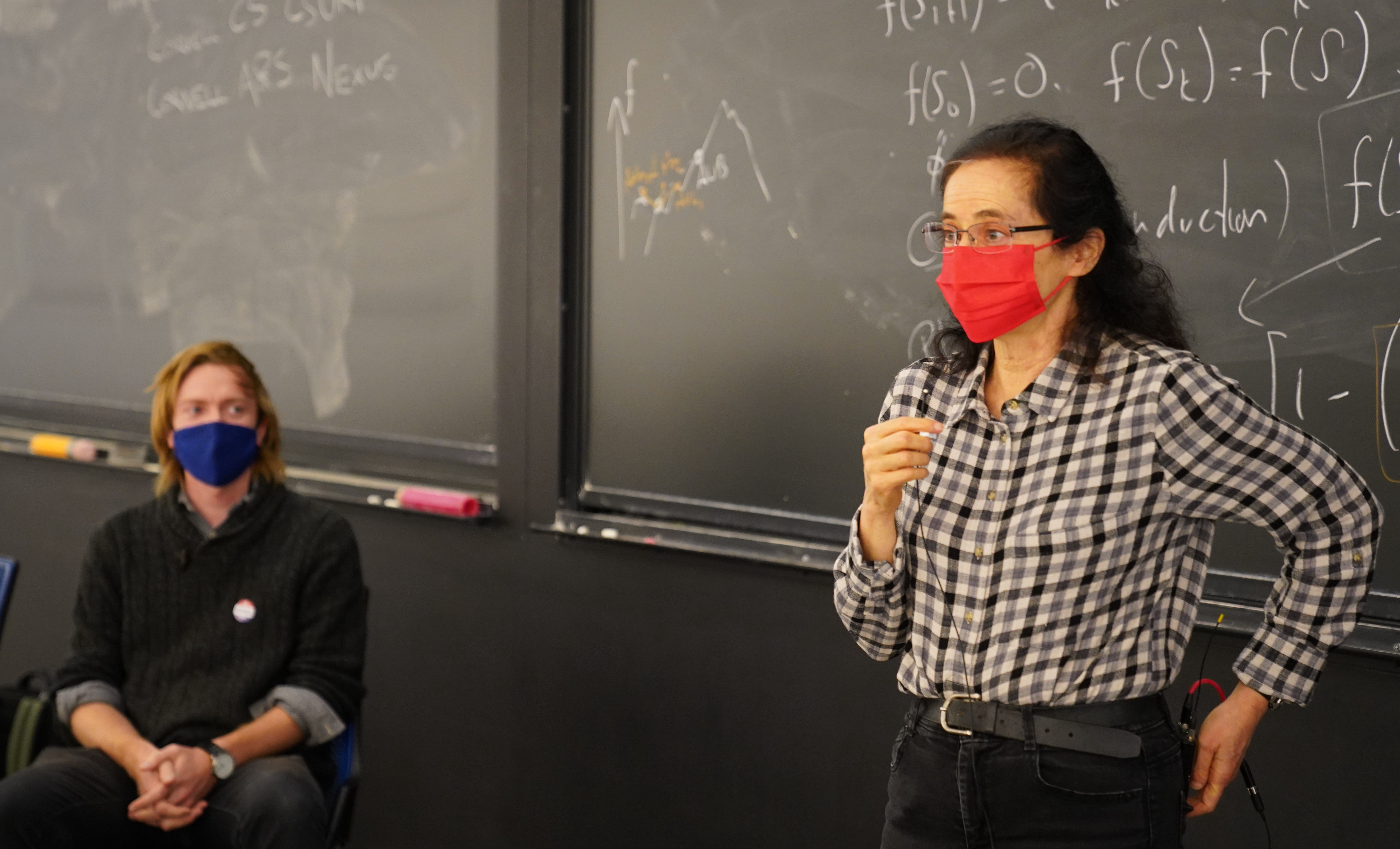
Éva Tardos addresses the audience in Gates Hall; seated, Adrian Sampson
CS Chair and Professor, Éva Tardos, started things off with a warm welcome: "It's really cool to see you all of you in person and to see so many people interested in research. Research is necessary to make technology develop and move forward. Research is good for you, in particular, as it adds to your resume; it makes you try interesting new stuff; it makes you more employable, no matter where you want to go; and it might encourage you to do research as a career. We're super proud of how many Cornellians are now researchers in various universities, big industry, and separate research groups." She concluded by emphasizing that "there are many opportunities for getting involved in research."
If you missed this semester's live event, please do reach out to CS faculty and graduate students to explore what may be possible. And do look out for the next session of Research Night in Spring 2022.
Travis Zhang (CS '24), Claire Wang (CS '22), and Alaia Solko-Breslin (CS M.Eng. '22)—all three ACSU volunteers—formed a lively panel and set the stage for audience questions. Each volunteer offered reflections on their experiences in undergraduate and graduate research, and how those new to university research might find their way to exciting opportunities in computer science.

left to right: Alaia Solko-Breslin, Claire Wang, and Travis Zhang
"In research, there is no clear solution," noted Solko-Breslin, "and that's what makes it fun." Wang encouraged the audience "to do research as soon as you can." Professor Sampson added: "The best thing you can do is give research a shot," so that you can decide if you like it." Sampson said it's helpful to approach research as a kind of practice rather than a type of content, or even a specific field. And research, Sampson suggested, is a good way to prepare for graduate school, especially Ph.D. programs. Indeed, these days one needs research experience in order to be a competitive applicant.
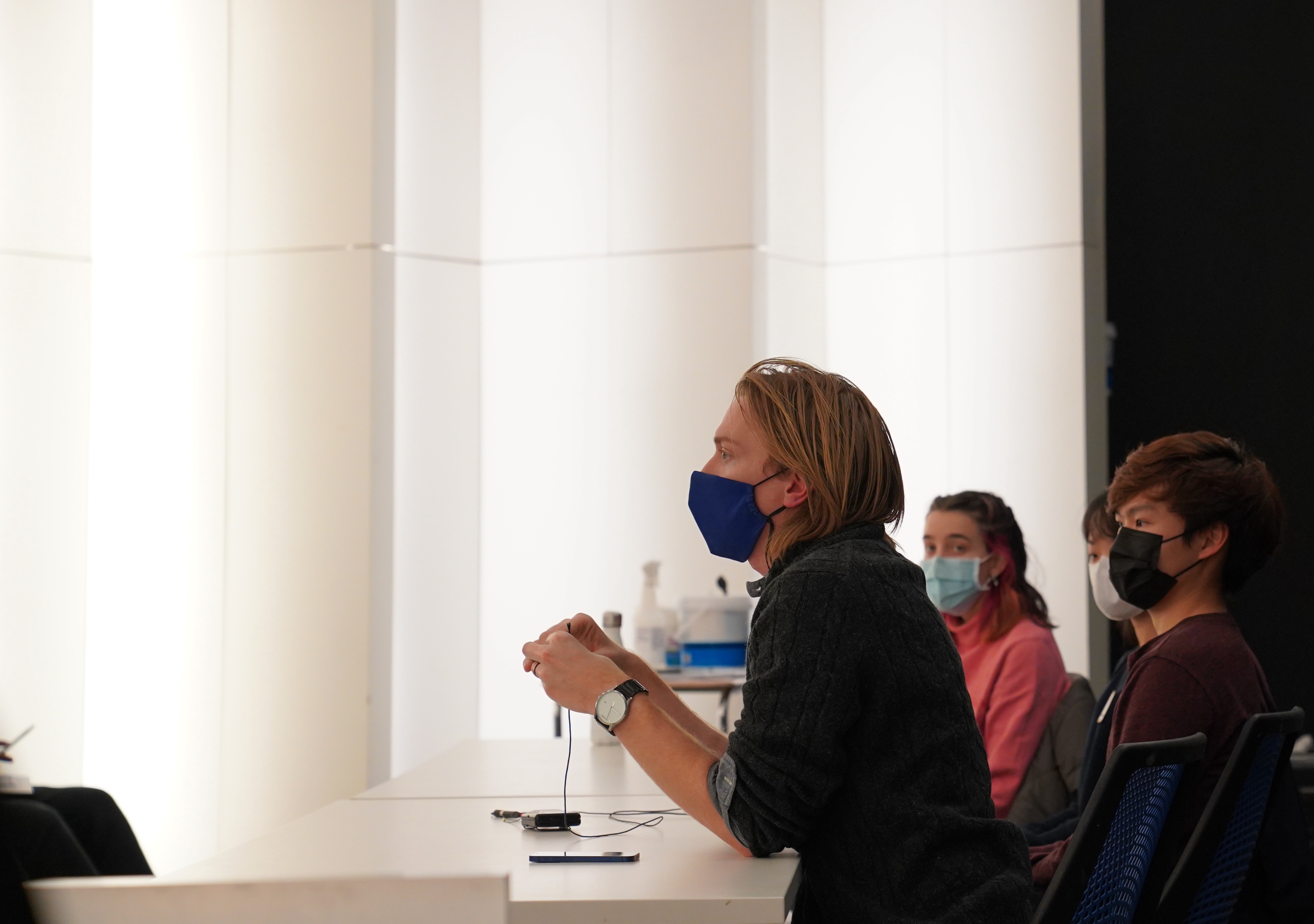
Adrian Sampson addressing the audience
As a strategy and outlook for research, Sampson said one might "explore the pleasures of being lost in research . . . and also of finding your way to new pathways." He emphasized that though seeking out research may be an individual choice, research itself "tends to be more collaborative in nature," a mix of independent activity and working with others.
Zhang spoke to research's potential "to build technology that benefits the community." And Solko-Breslin underscored how the process of getting to such results begins here: "We have an amazing faculty at Cornell. Take the opportunity to work with them," she counseled.
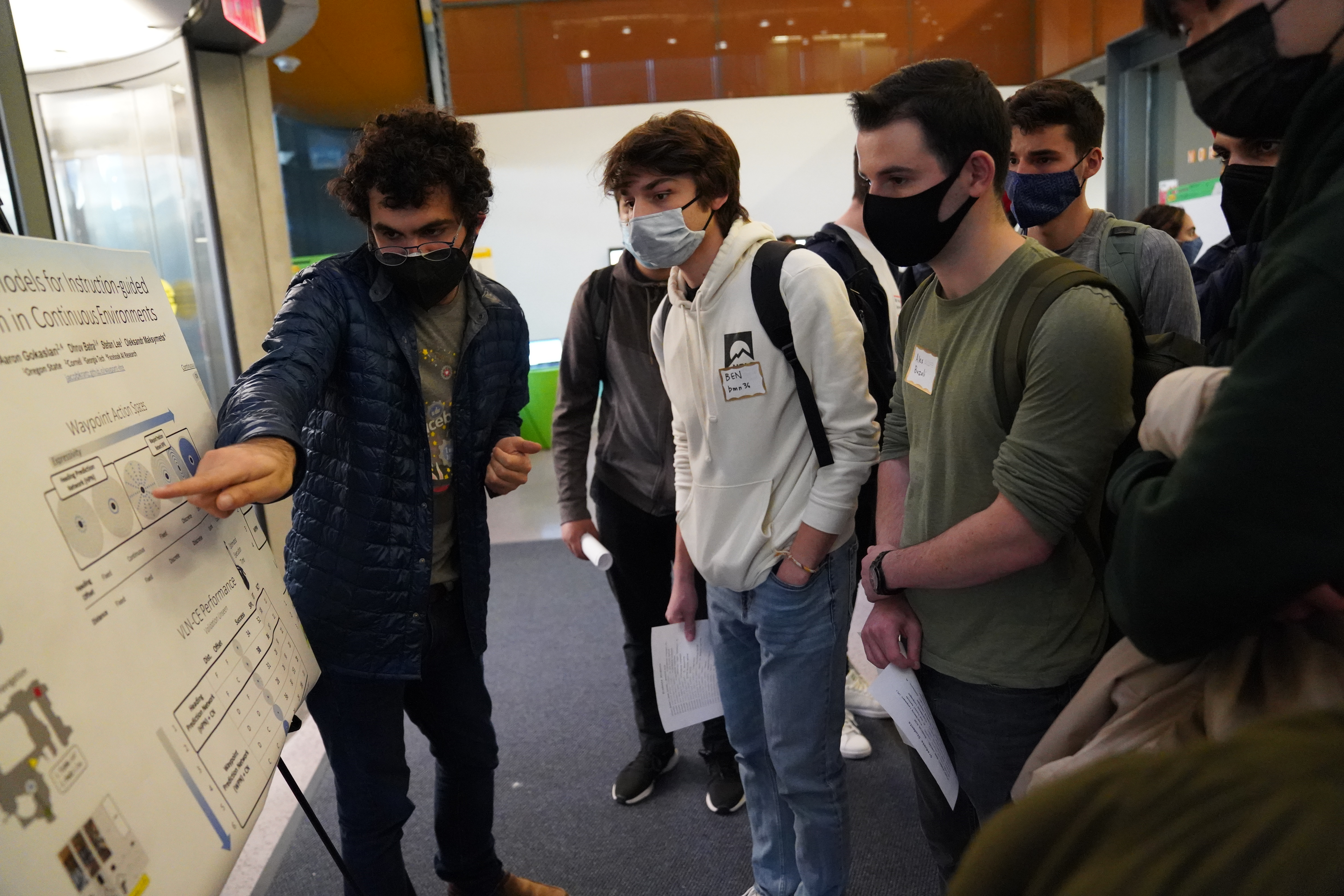
After the panel, the masked audience dispersed into the atrium to discuss research with twenty-two graduate students, who were prepared to welcome them with posters of their latest projects. Speaking to Programming Languages, there was: Dietrich Geisler, Noam Zilberstein, Anshuman Mohan, Qian Meng, Jialu Bao, Karuna Grewal, and Eric Campbell. Qian Xie's subject was online decision making and Alicia Yang discussed systems. Linguistics was John R. Starr's realm, while Alexandra Bremers looked to interaction design. Theory, AI, and Machine Learning were taken up by Oliver Richardson, Renee Mirka, Giannis Fikioris, Jesse Goodman, Kate Donahue, Simon Alford, Sean Sinclair, Shiang C and Yucheng Lu. Computer Vision and Graphics were covered by Utkarsh Mall and Aaron Gokaslan.
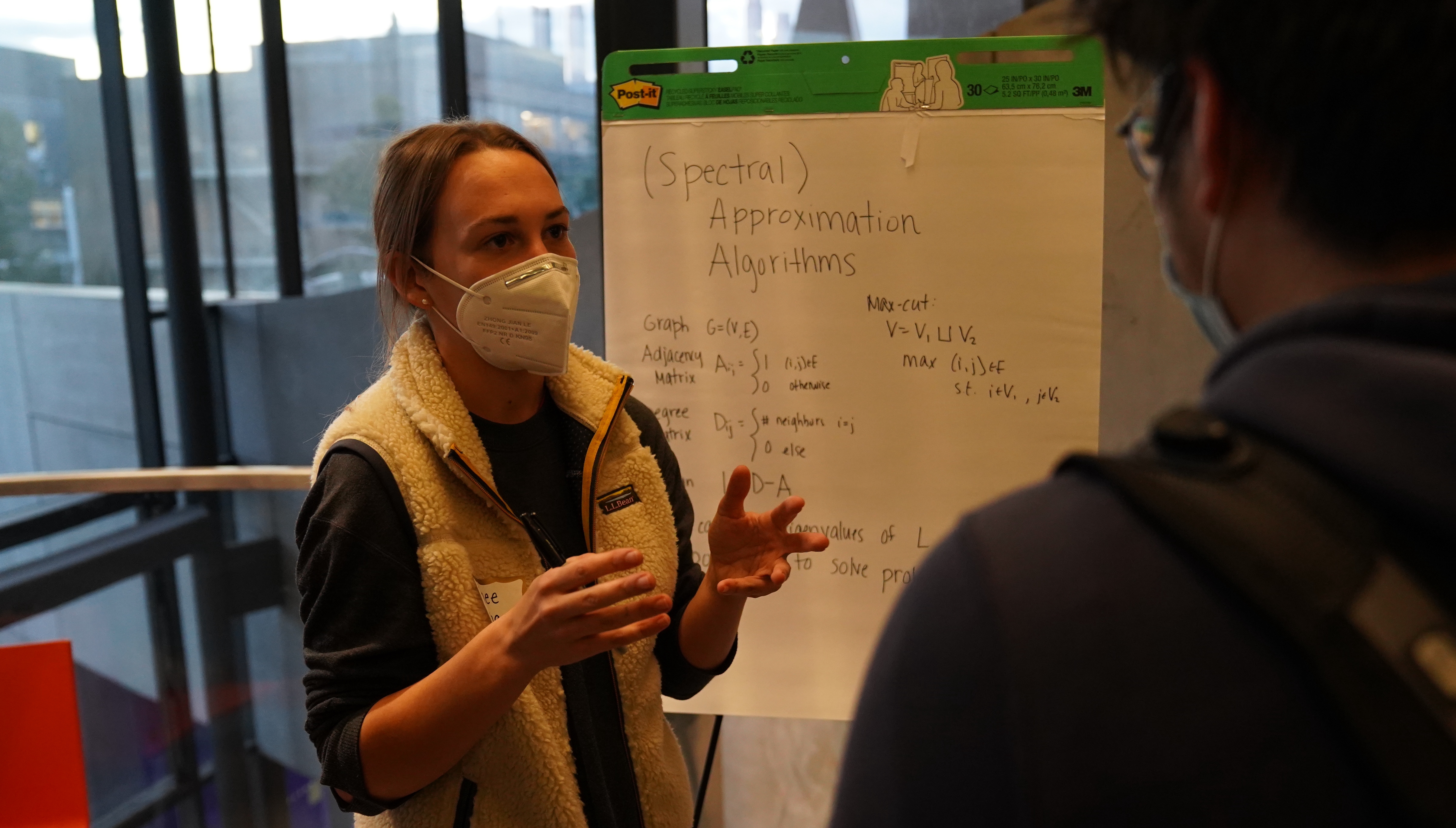
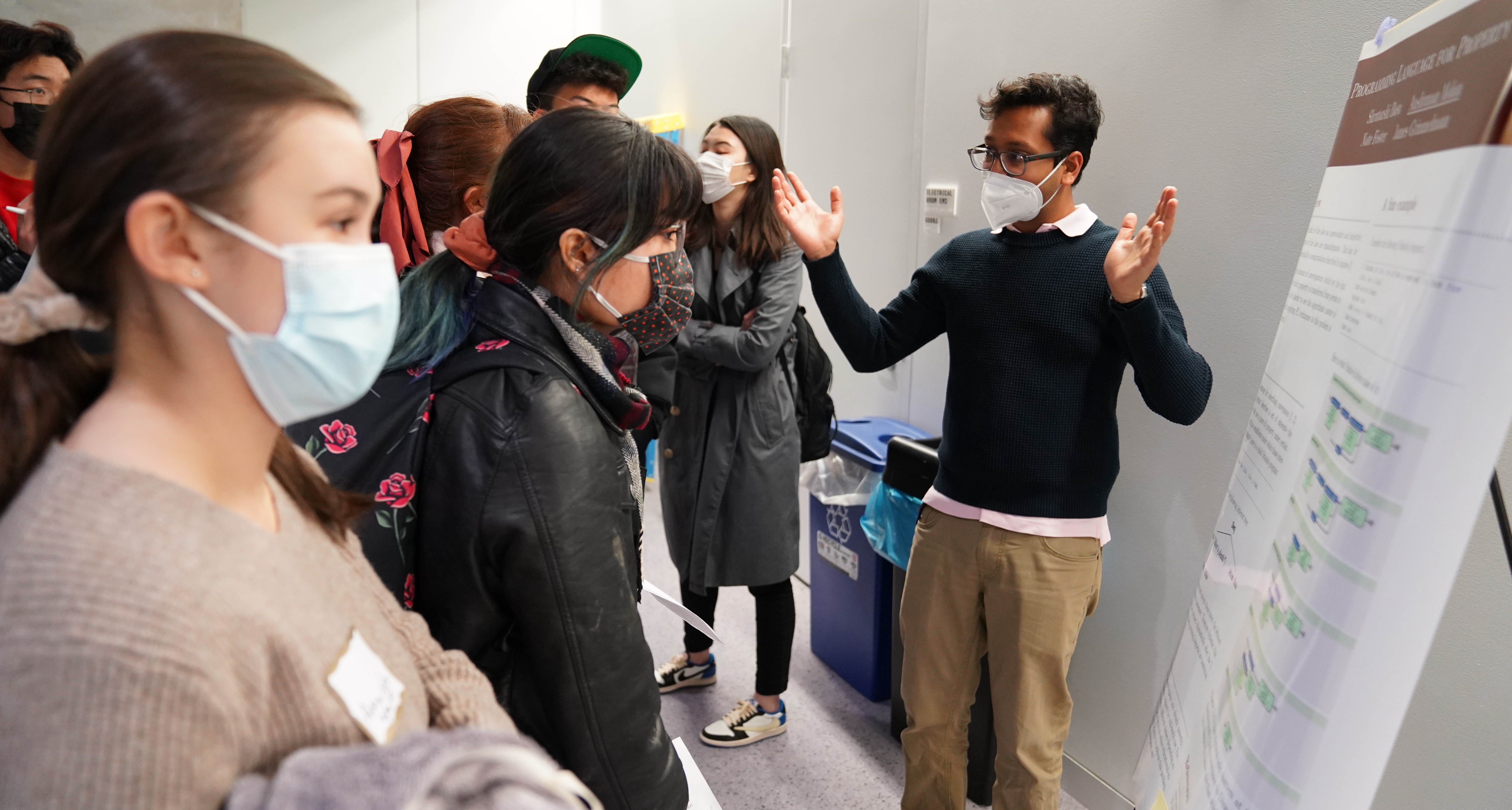
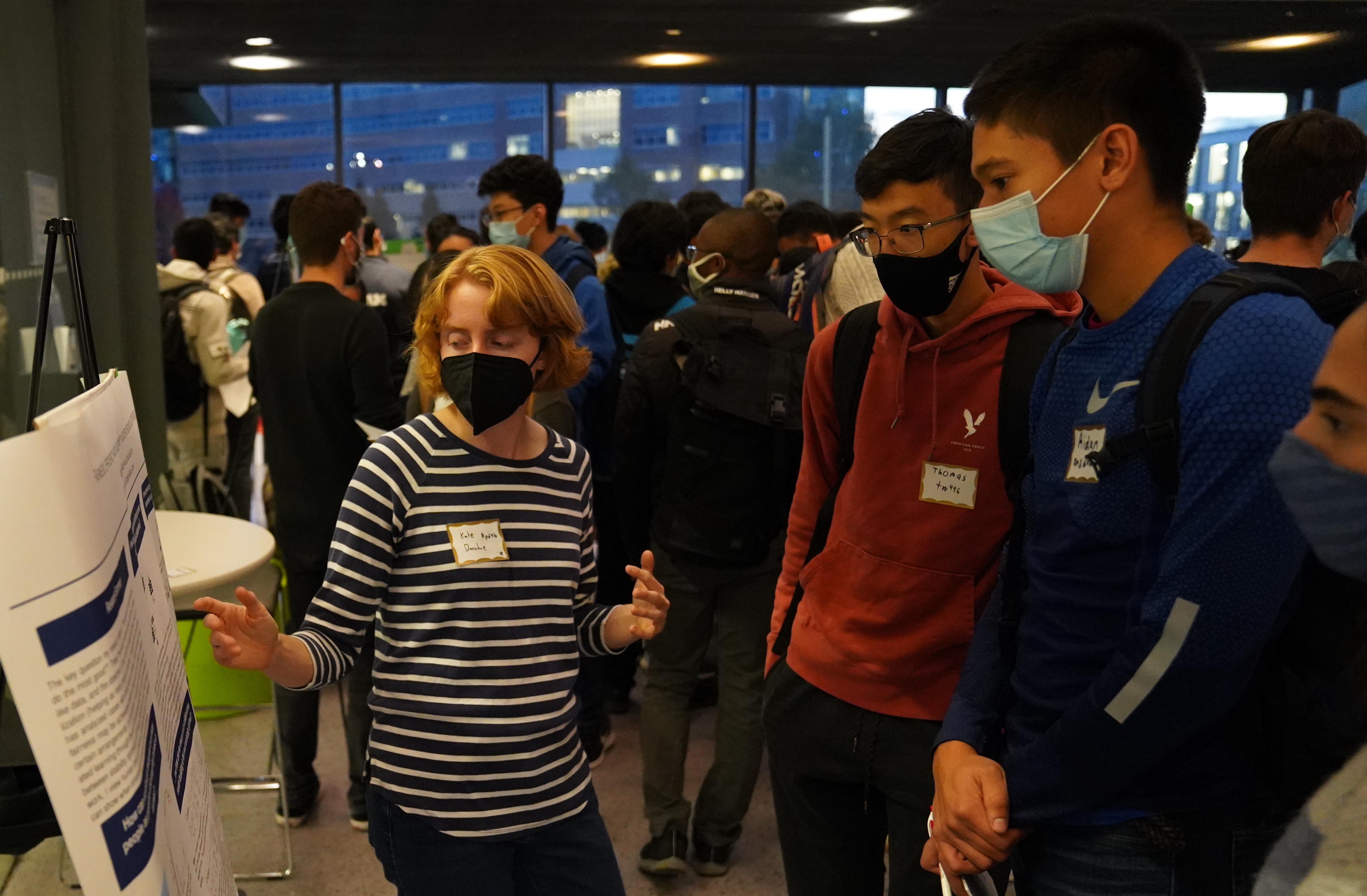
Thank you to all who made the event a great success. See you next semester.
If you wish to continue exploring in this direction, consider visiting this page from an earlier online version of the event, including remarks by Adrian Sampson and many recorded poster sessions.



